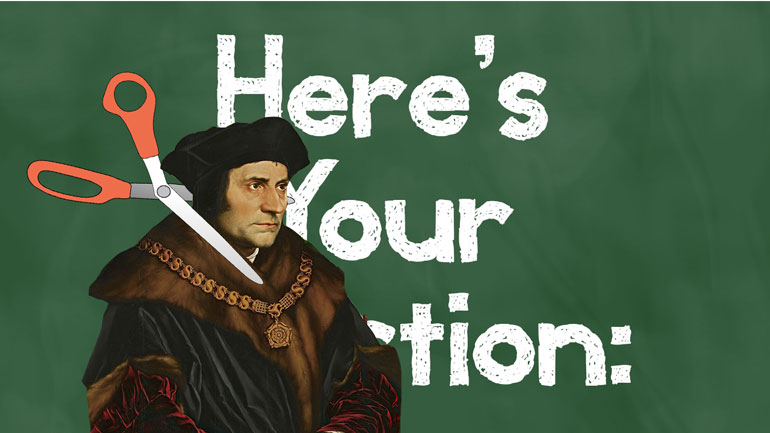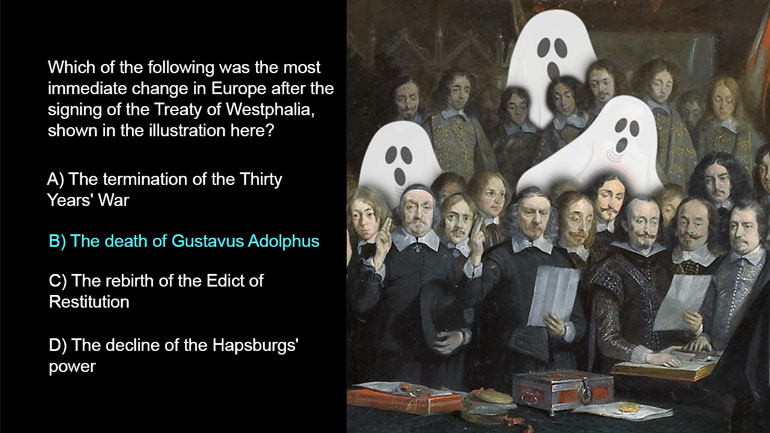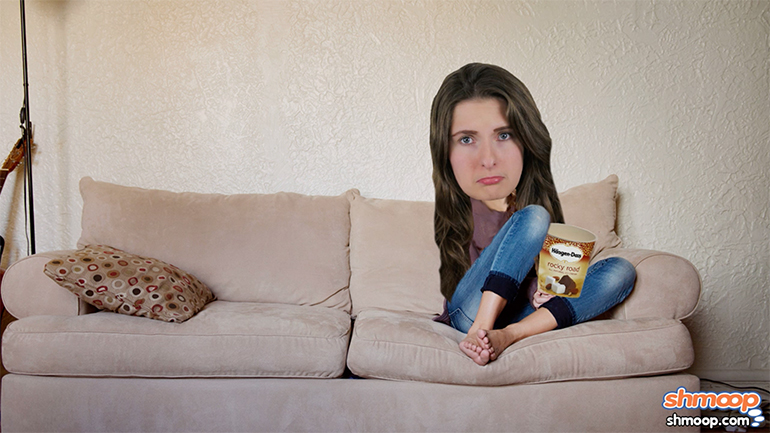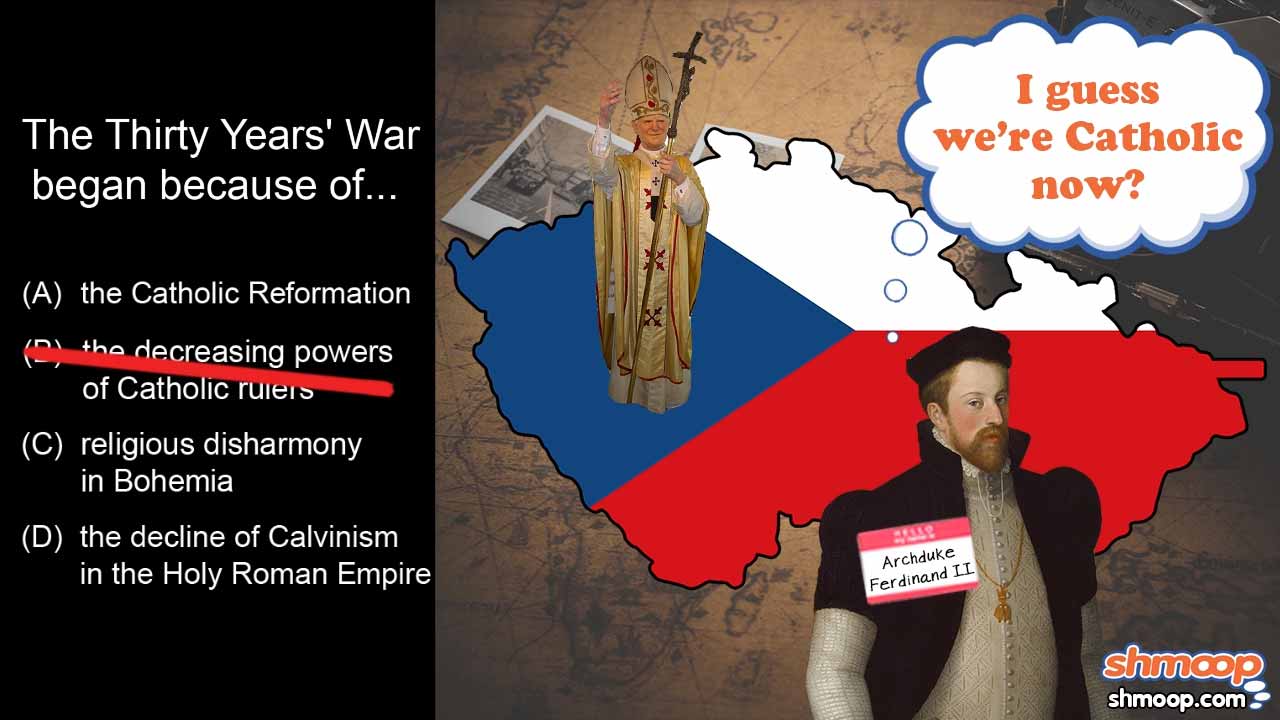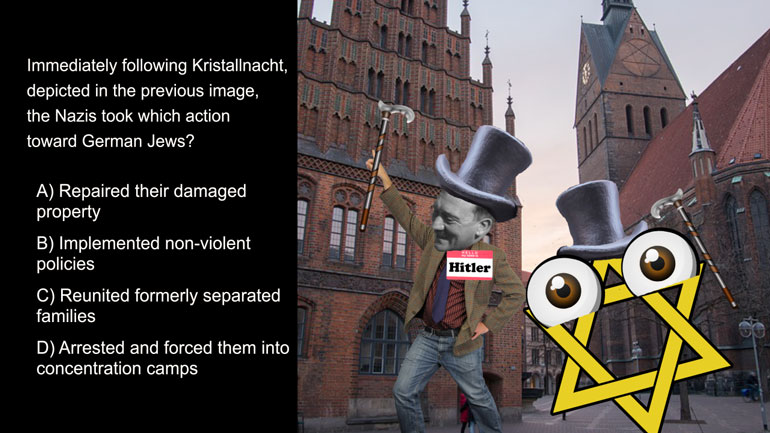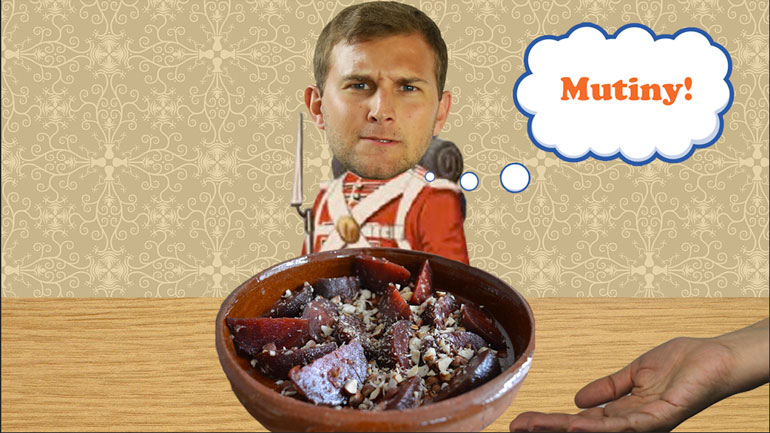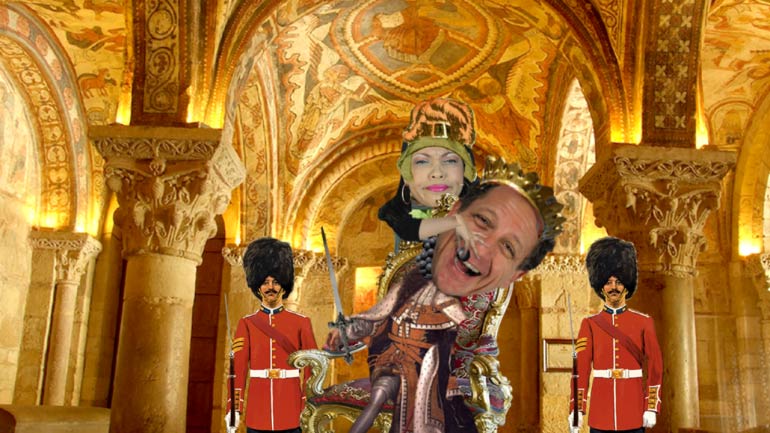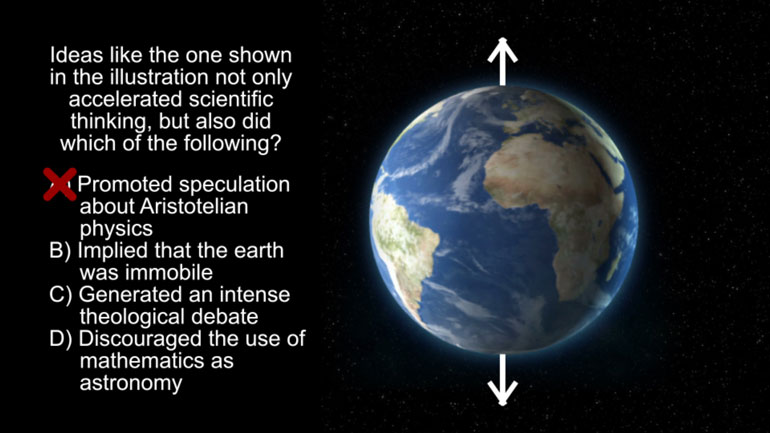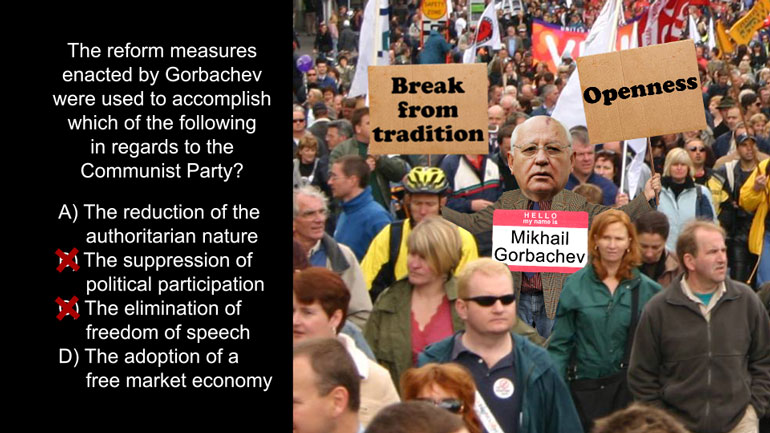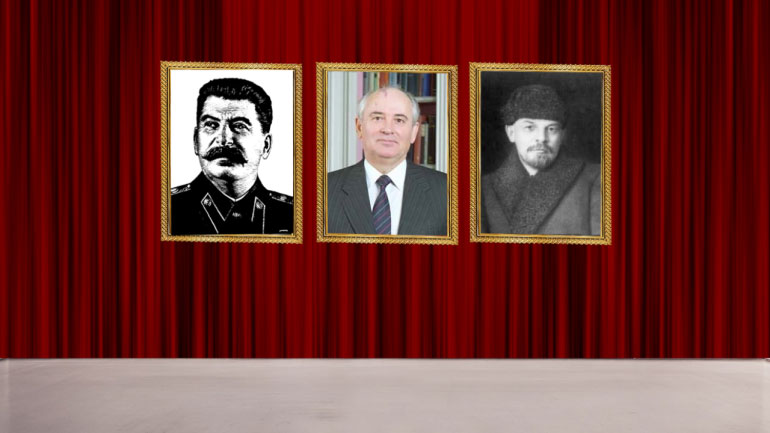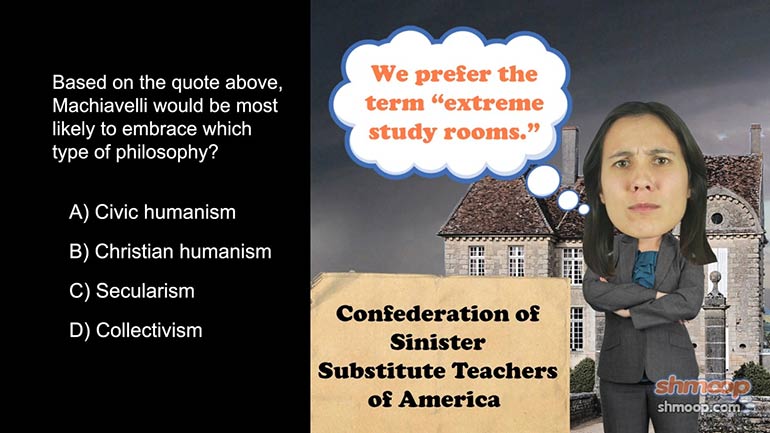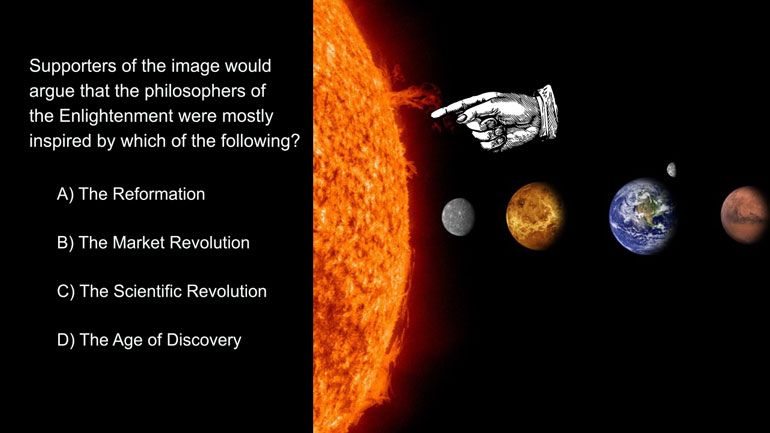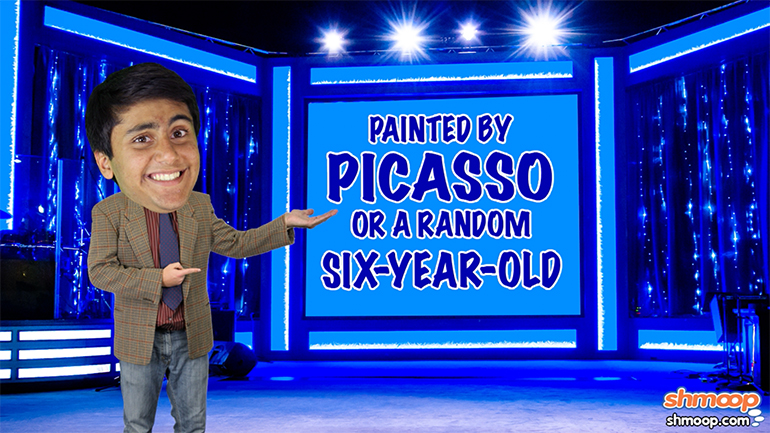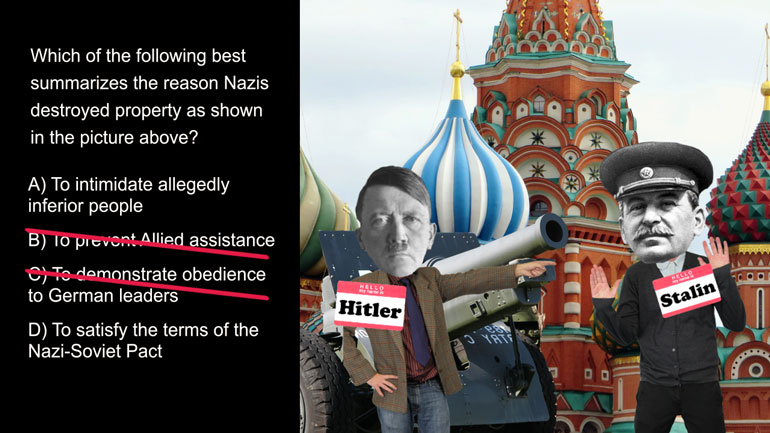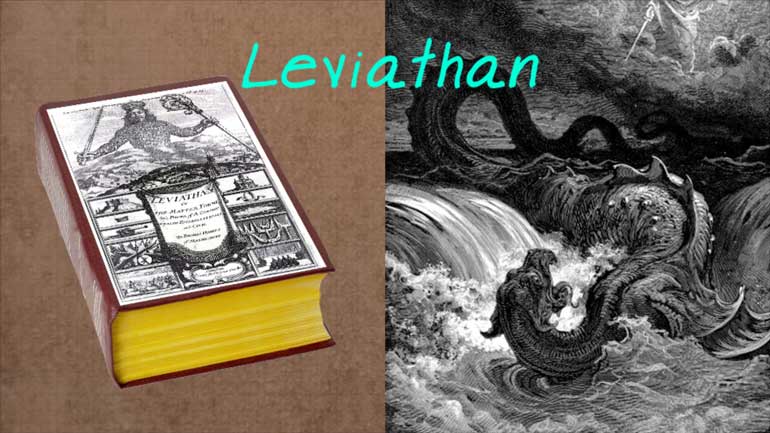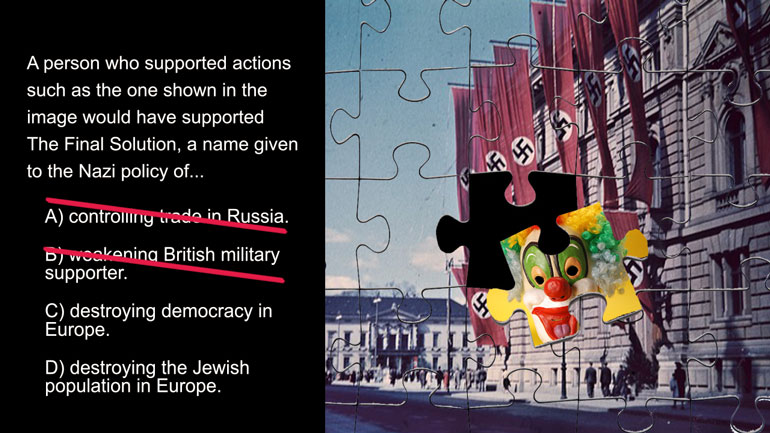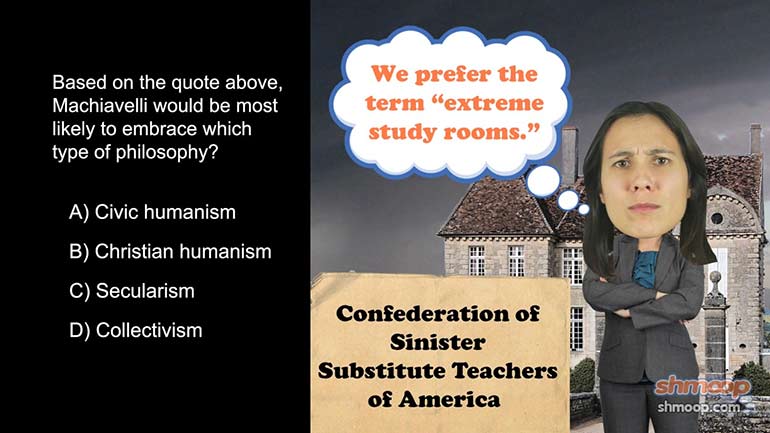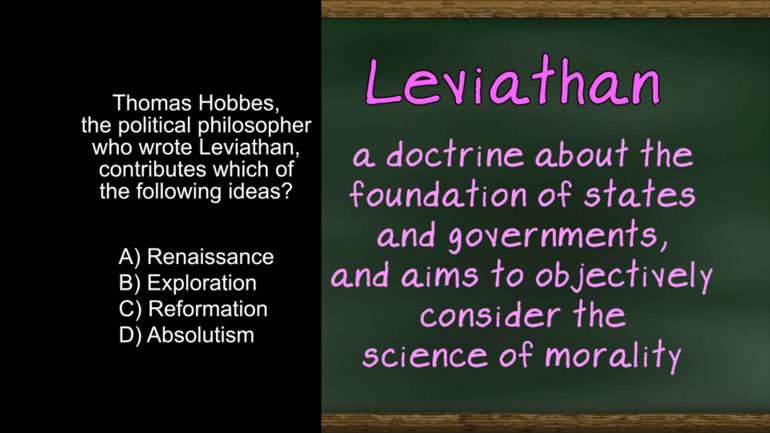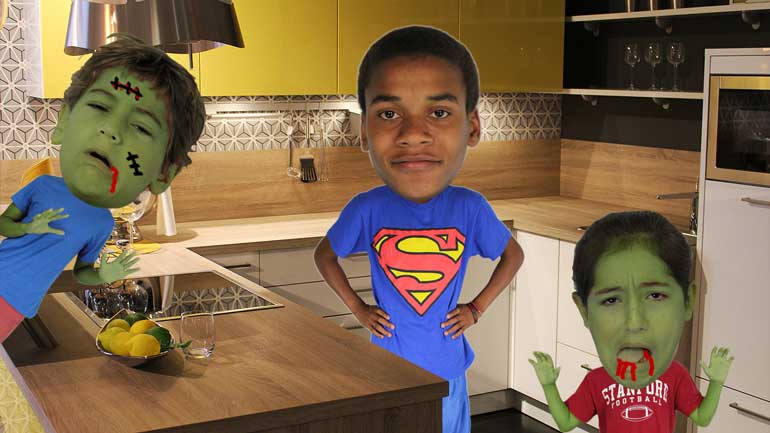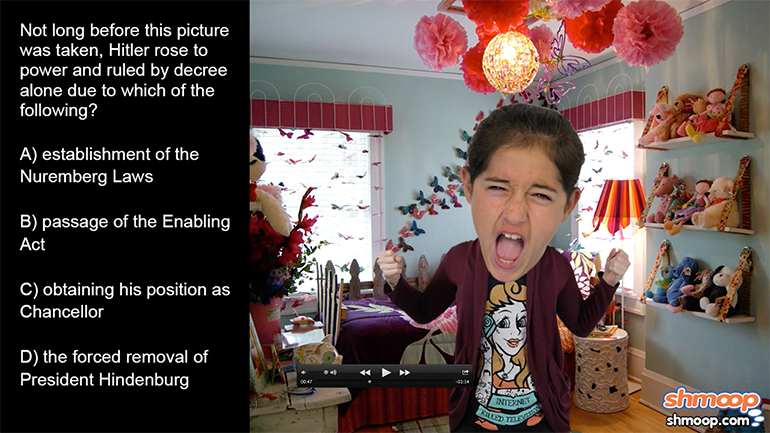ShmoopTube
Where Monty Python meets your 10th grade teacher.
Search Thousands of Shmoop Videos
AP European History Videos 26 videos
AP European History 1.5 Period 1: 1450-1648. Machiavelli's The Prince was similar to Thomas More's philosophy because it...what?
AP European History 2.3 Period 1: 1450-1648. Which of the following was the most immediate change in Europe after the signing of the Treaty of West...
AP European History 2.2 Period 1: 1450-1648. The man portrayed in the image was previously motivated to tack the Ninety-five Theses on the doo...
AP European History 1.5 Period 2: 1648-1815 23 Views
Share It!
Description:
We know how much you hate rules of any kind, but it's time to consider what effect the absolute rule of European monarchs had on their society. These monarchs may have ruled, but it's arguable whether or not they "ruled." #RuleJokes
Related Videos
AP European History Period 1: 1450-1648 Drill 2, Problem 1. As a result of the meeting in the image, which of the following occurred?
AP European History Period 3: 1815-1914 Drill 2, Period 1, Les Demoiselles d'Avignon represented the beginning of which of the following art m...
AP European History Period 3: 1815-1914 Drill 2, Problem 4. Paintings like the one depicted above were a direct reflection of what?
AP European History 1.2 Period 4: 1914-Present Not long before this picture was taken, Hitler rose to power and ruled by decree alone due to which...
AP European History 1.4 Period 3: 1815-1914. As evidenced through the passage above, Karl Marx was a passionate leader and is considered the father...
